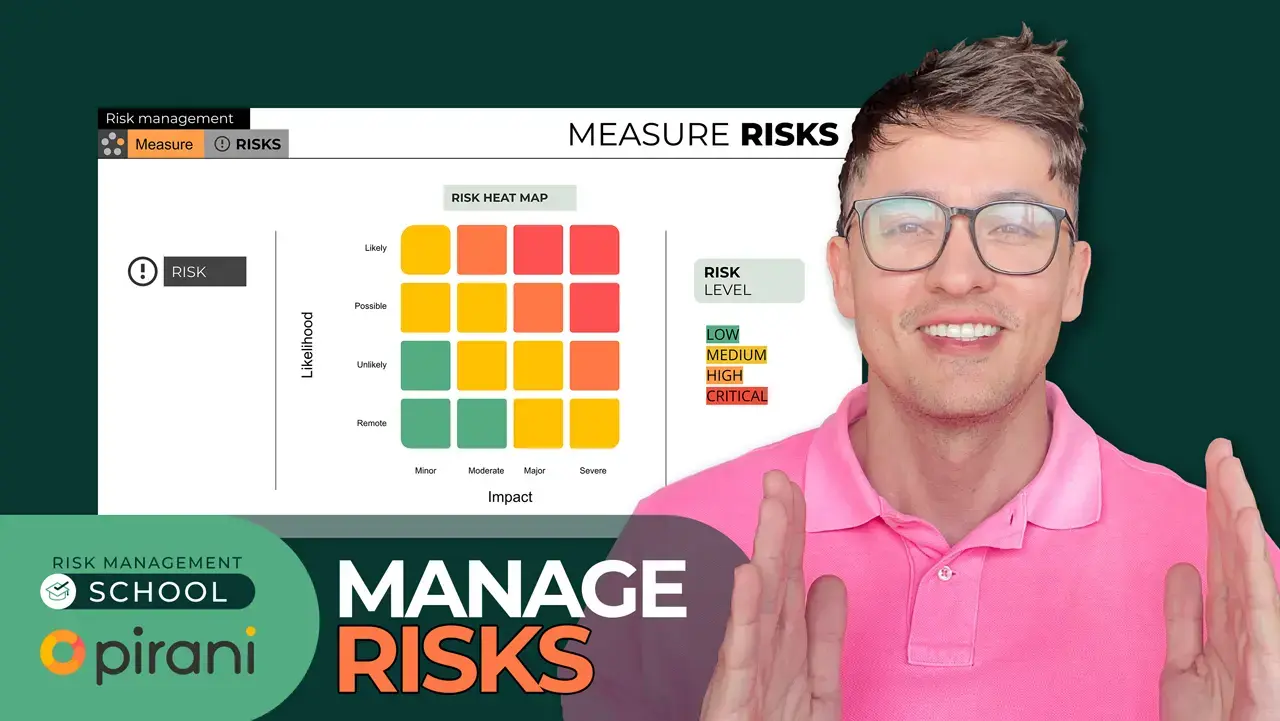Risk Management and ISO 31000: What You Need to Know
by Risk Management School on 1 de October de 2023
In this class, Stephanie Arango, business development representative at Pirani, taught us what Risk Management is, what GRC is, ISO 31000, what operational risk management is, and a demo of Pirani Operational Risk Management Solution.
What is Risk Management?
Risk management is a systematic process that involves identifying, assessing, prioritizing, and mitigating risks to an organization or project to minimize potential negative impacts and maximize opportunities for success.
Key Components of Risk Management
- Risk Assessment
- Risk Prioritization
- Risk Mitigation
- Risk Monitoring & Review
- Risk Communication
- Risk Reporting & Documentation
- Risk Tolerance & Appetite Contingency
- Risk Identification
What is GRC?
GRC stands for Governance, Risk Management, and Compliance. Organizations use a framework and set of practices to align their strategic objectives, manage risks effectively, and ensure compliance with relevant laws, regulations, and industry standards.
Why is GRC important?
GRC is important for all organizations because it helps them operate more effectively, manage risks proactively, and maintain compliance with legal and regulatory requirements. It contributes to organizations' long-term sustainability and success by fostering good governance, reducing risks, and enhancing accountability and transparency.
What is ISO 31000?
ISO 31000 is an international standard that provides guidelines and principles for risk management. ISO 31000 offers a framework and a set of principles and processes that organizations can use to effectively identify, assess, manage, and monitor risk that may affect their ability to achieve their objectives.
Key Components of ISO 31000
Implementing ISO 31000 can lead to improved decision-making, better resource allocation, and, ultimately, the protection and enhancement of an organization's reputation and value.
What is Operational Risk Management?
Operational risk management is a specific subset of risk management that focuses on identifying, assessing, and mitigating risks associated with the day-to-day operations of an organization. Risks are primarily related to internal processes, systems, people, and external events that can disrupt or negatively impact an organization's ability to achieve its objectives.
Why is Operational Risk Management important?
Operational risk management is crucial for maintaining the stability and resilience of an organization's day-to-day operations. Organizations can reduce the likelihood of disruptions, financial losses, and reputational damage by identifying, assessing, and mitigating operational risks. Effective operational risk management contributes to business continuity and helps achieve strategic objectives.
You May Also Like
These Related Stories

[class #2] How to manage your organization's risks

Emerging Risks 2026: What Risk Leaders Must Prepare for Now



No Comments Yet
Let us know what you think